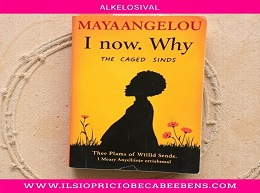On Writing: A Memoir of the Craft

In-Depth Review of "On Writing: A Memoir of the Craft" by Stephen King
Stephen King’s "On Writing: A Memoir of the Craft," published in 2000, is a masterful blend of memoir and writing guide. Known for his prolific output and mastery of the horror genre, King offers readers a unique glimpse into his personal life and writing journey. This book not only provides a fascinating look at King’s experiences but also serves as an invaluable resource for aspiring writers. In this review, we will explore the key elements of "On Writing," including King’s autobiographical insights, practical advice for writers, and the impact of this work on both his fans and the writing community at large.
Part One: C.V. - The Autobiographical Journey
King begins "On Writing" with a section titled "C.V.," a concise autobiography that traces his early years, struggles, and successes. This part of the book is essential for understanding the context of King’s writing philosophy. He recounts his childhood in small-town Maine, the influence of his mother and brother, and his early fascination with storytelling.
For example, King shares anecdotes about his first attempts at writing, including the creation of his own newspaper and early short stories. These tales are not only entertaining but also highlight the persistence and passion that fueled his journey. His experiences with rejection, such as the numerous form rejection slips he received for his short stories, resonate with many aspiring writers, emphasizing the importance of perseverance.
Part Two: Toolbox - The Fundamentals of Writing
In the second section, "Toolbox," King delves into the mechanics of writing. He uses the metaphor of a carpenter’s toolbox to describe the essential tools every writer needs. This part of the book is filled with practical advice on vocabulary, grammar, and style. King’s straightforward approach makes these concepts accessible to writers at all levels.
One notable example is King’s advice on vocabulary: “Use the first word that comes to your mind, if it is appropriate and colorful.” He encourages writers to avoid overcomplicating their language, advocating for clarity and simplicity. His emphasis on active voice over passive voice, as well as the importance of avoiding adverbs, provides concrete guidelines for effective writing.
Part Three: On Writing - The Craft
The third section, "On Writing," is where King offers his most detailed advice on the craft itself. He discusses the importance of discipline, recommending a daily writing routine and a minimum word count goal. King’s famous advice, “Write with the door closed, rewrite with the door open,” emphasizes the need for a balance between solitary creativity and feedback from others.
King also addresses the structure of stories, character development, and dialogue. He uses examples from his own work, such as "Carrie" and "The Shining," to illustrate his points. This blend of theoretical advice and practical examples makes the lessons more tangible. For instance, he explains how the idea for "Carrie" came from a combination of two unrelated experiences, demonstrating the serendipitous nature of inspiration.
Part Four: On Living - A Postscript
In the final section, "On Living: A Postscript," King recounts the life-altering accident he experienced in 1999, when he was struck by a van while walking near his home. This part of the book is deeply personal and moving, detailing his long and painful recovery process. King’s determination to return to writing despite his physical limitations underscores his profound commitment to the craft.
This section serves as a powerful testament to the resilience required not only in writing but in life. King’s candidness about his struggles and fears during this period offers a stark reminder of the fragility of life and the enduring power of creativity.
1. The Importance of Routine
One of the recurring themes in "On Writing" is the importance of establishing a writing routine. King’s advice to write every day, setting a specific word count goal, emphasizes the need for discipline and consistency. He believes that treating writing like a regular job, with set hours and targets, is crucial for productivity.
2. Honesty and Authenticity
King stresses the importance of honesty and authenticity in writing. He encourages writers to draw from their own experiences and emotions, arguing that genuine writing resonates more with readers. This theme is evident in his own work, where personal experiences often shape his stories.
3. The Role of Reading
Another key lesson is the role of reading in becoming a better writer. King advises writers to read extensively, across different genres, to understand various writing styles and techniques. He believes that reading is as integral to writing as practicing the craft itself.
Impact and Reception
"On Writing: A Memoir of the Craft" has been widely acclaimed by both readers and critics. It has become a staple on the bookshelves of aspiring writers, praised for its practicality, humor, and heartfelt insights. King’s ability to demystify the writing process and offer relatable advice has made this book a beloved resource.
The book’s impact extends beyond the realm of writing. It provides a deeper understanding of King as a person and an artist, enriching the appreciation of his extensive body of work. For fans of King’s novels, "On Writing" offers a behind-the-scenes look at the mind of a master storyteller.
Stephen King’s "On Writing: A Memoir of the Craft" is a remarkable blend of autobiography and writing guide. Its candid, practical, and deeply personal approach makes it a valuable resource for writers and a captivating read for fans of King’s work. By sharing his journey, tools, and techniques, King inspires and empowers readers to pursue their own writing ambitions with passion and perseverance.
Whether you are an aspiring writer seeking guidance or a reader interested in the life and mind of Stephen King, "On Writing" offers a wealth of wisdom and inspiration. It stands as a testament to the power of storytelling and the enduring human spirit, leaving an indelible mark on all who read it.













